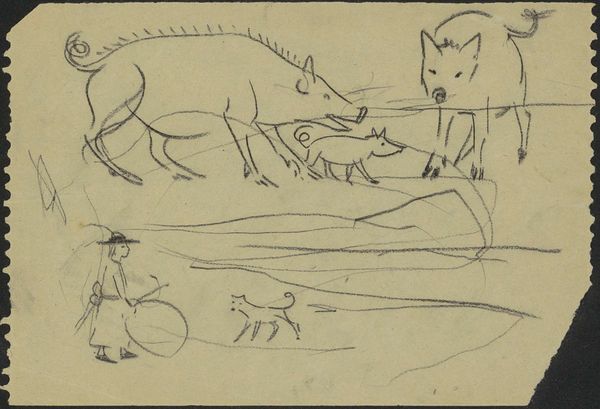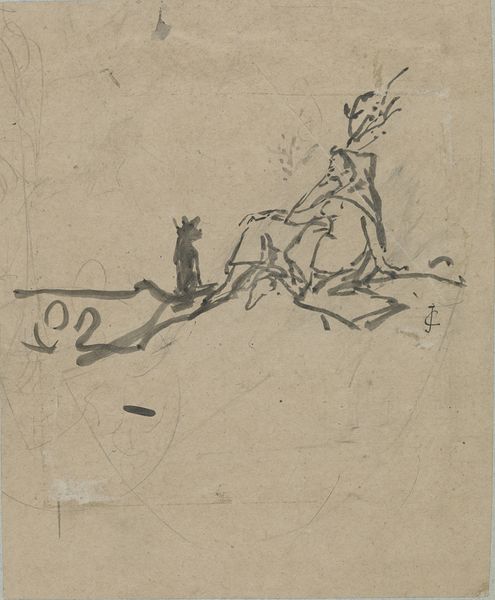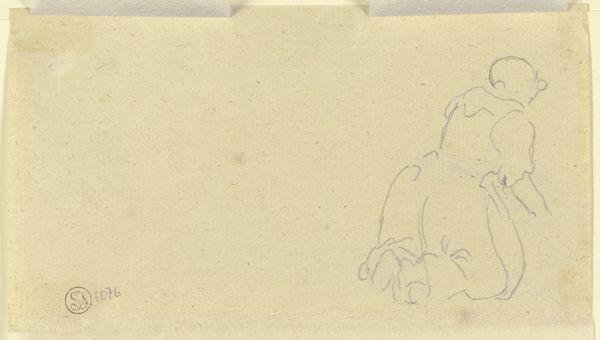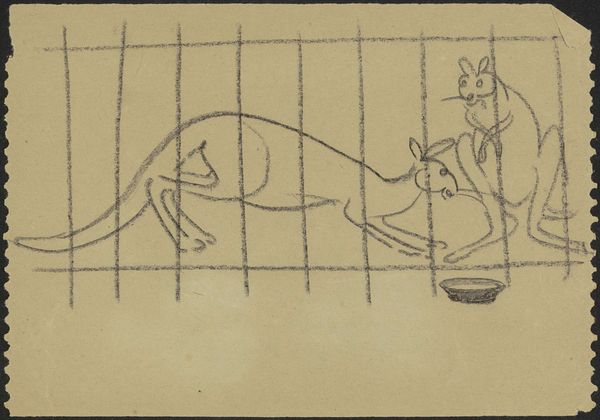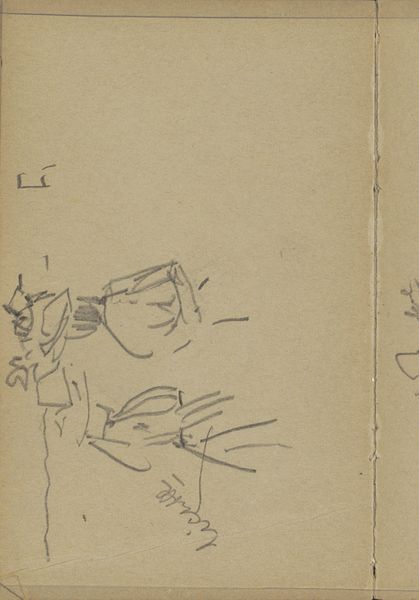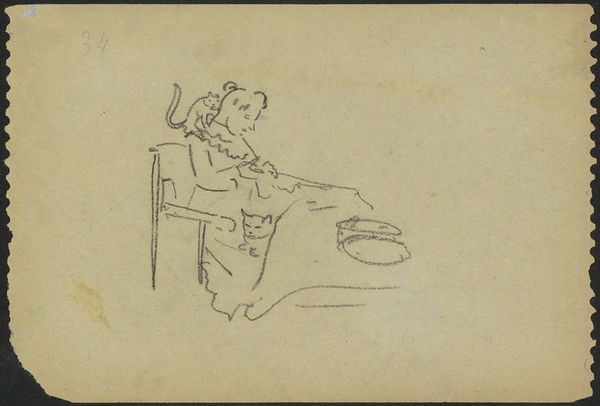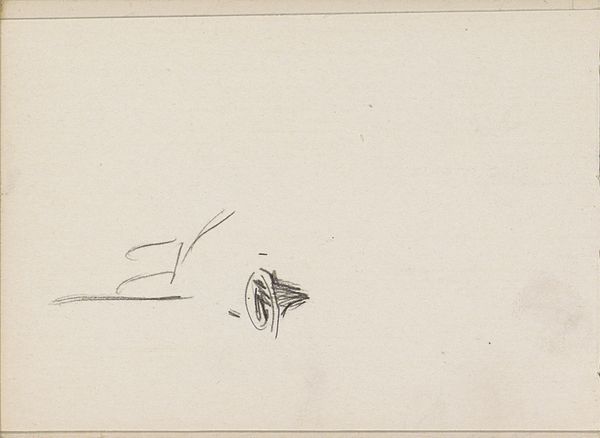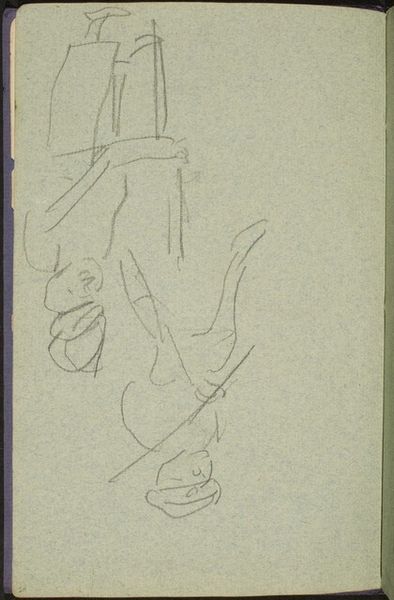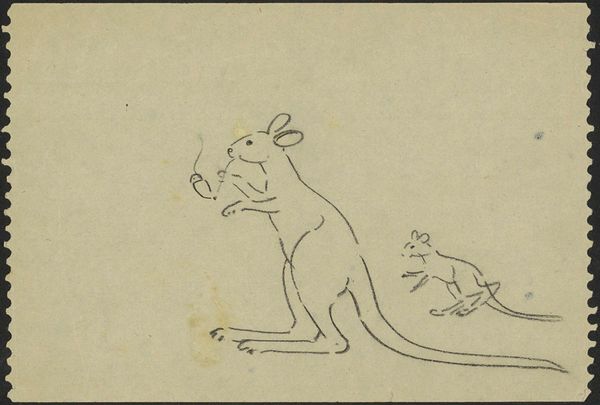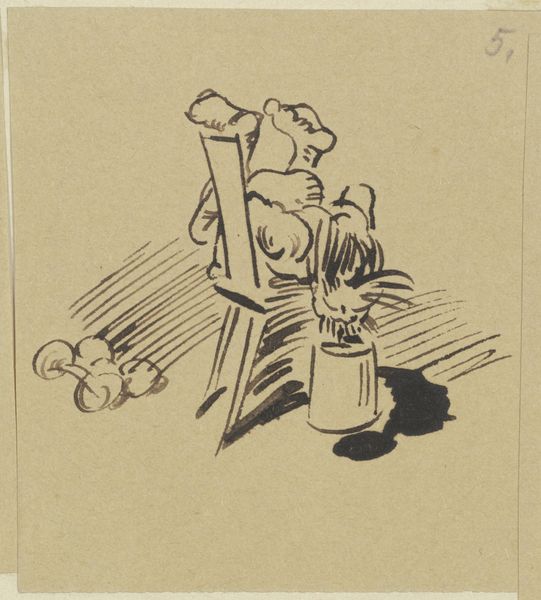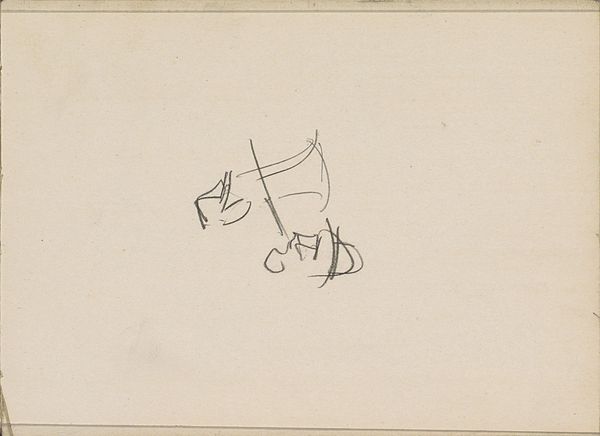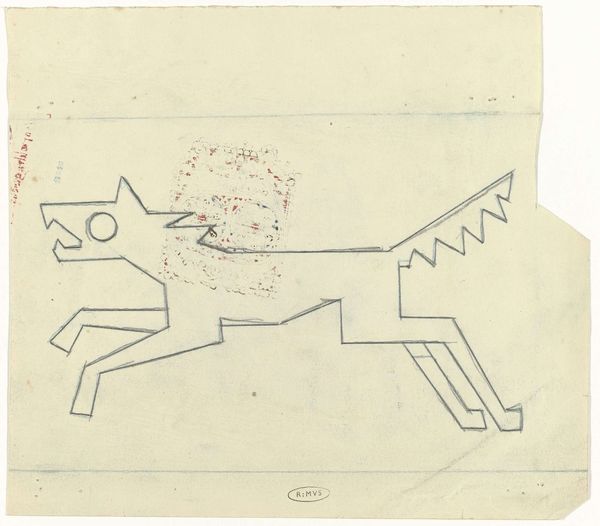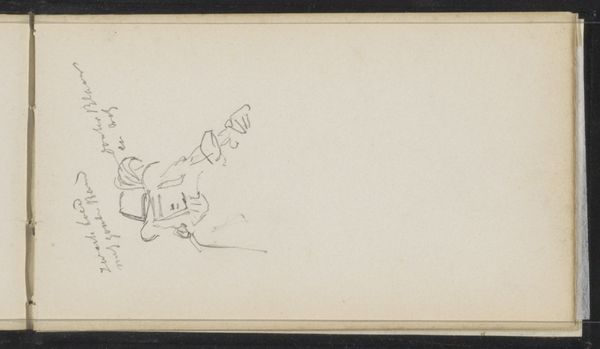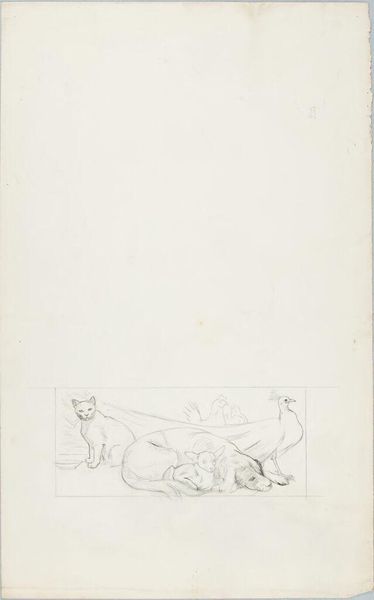
drawing, paper, ink
#
drawing
#
imaginative character sketch
#
toned paper
#
ink drawing
#
animal
#
figuration
#
paper
#
personal sketchbook
#
ink
#
ink drawing experimentation
#
pen-ink sketch
#
ink colored
#
line
#
sketchbook drawing
#
watercolour illustration
#
sketchbook art
Dimensions: height 123 mm, width 169 mm
Copyright: Rijks Museum: Open Domain
Editor: This is Gerrit Willem Dijsselhof's "Varken en een big op een verhoging," or "Pig and a piglet on an elevation," made sometime between 1904 and 1906, rendered in ink on paper. There's a curious gestural quality to it, a raw energy that makes me wonder, what story is being told through the materiality of the ink itself? Curator: That’s an astute observation. Focusing on the materials, what does the stark simplicity of ink and paper suggest about the artist's intent and the context in which he created this work? Was he perhaps interested in accessibility, affordability, or challenging established artistic norms through this very selection? Editor: Maybe. It feels like a sketch, perhaps a preparatory work. Were such sketches common within the context of Dijsselhof's production, or that of his contemporaries? Were there limitations or affordances from such limited material availability? Curator: It could certainly function as a preparatory sketch; however, we also cannot separate it from the final design itself. The line work conveys volume, with visible pressure variances across each individual penstroke, demonstrating that while quick, Dijsselhof dedicated immense intentionality when making marks on the surface. How do these economic methods complicate distinctions between 'high' art and everyday life? Editor: That makes me rethink its status. If Dijsselhof wasn't aiming for 'high' art, perhaps he wanted to democratize art, by employing materials and processes accessible to more people. What about the labour involved – the swiftness of the marks versus the deliberate act of selecting the material itself? Curator: Precisely! The apparent speed of execution doesn't negate the deliberate, and likely repetitive, nature of mark-making in Dijsselhof’s practice overall. Thinking about the paper substrate, could its relative cheapness point towards art as a disposable commodity, or as a vehicle for ideas accessible across social strata? Editor: Wow, I hadn't considered those implications. I’m starting to see this drawing as much more complex than it initially seemed. Thinking about labor, materials and the intended consumer broadens its historical relevance. Curator: Absolutely. Material choices aren't just about aesthetics, but about power, access, and social meaning. I can feel a strong artistic agency within this humble sketch!
Comments
No comments
Be the first to comment and join the conversation on the ultimate creative platform.
